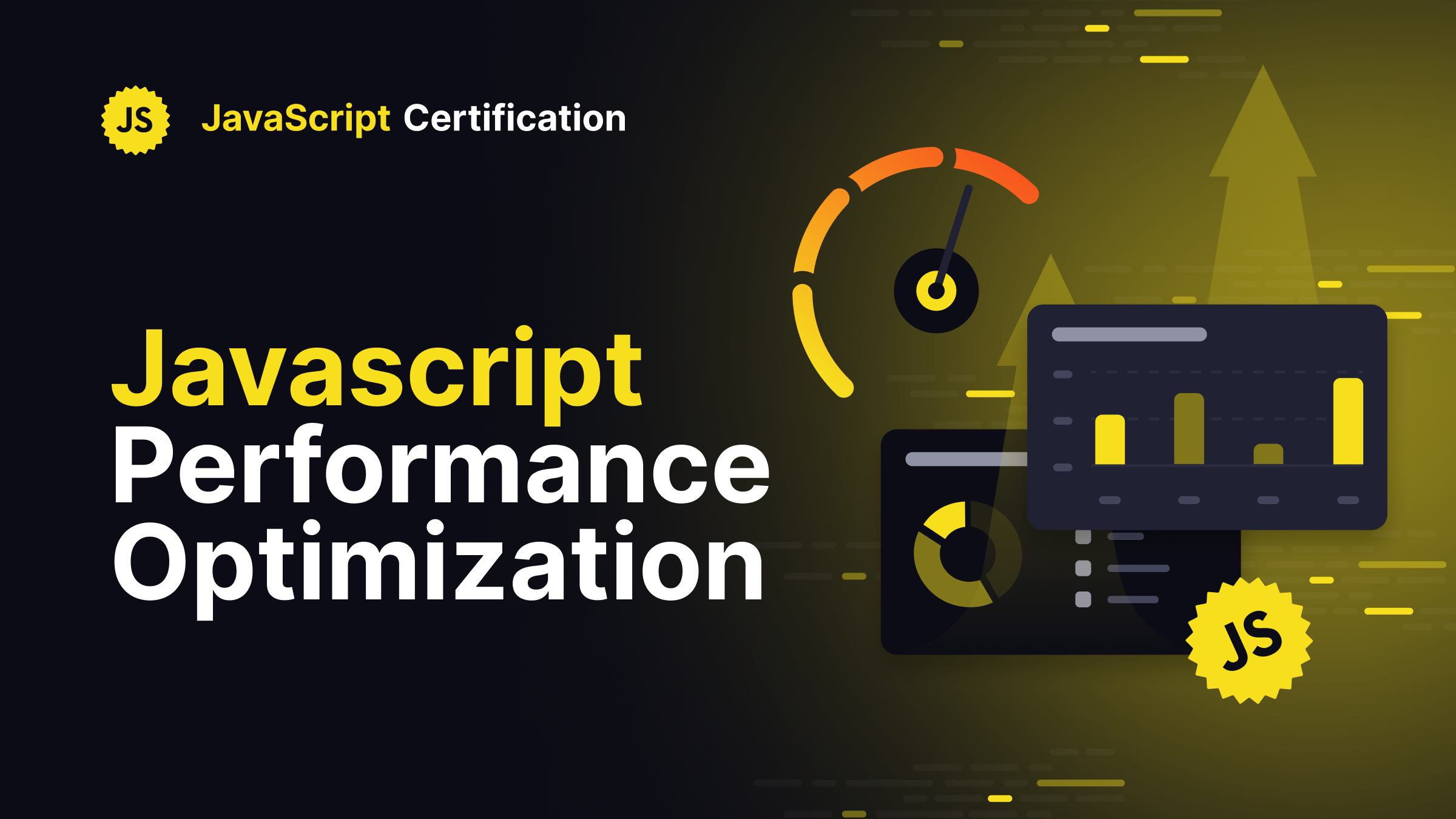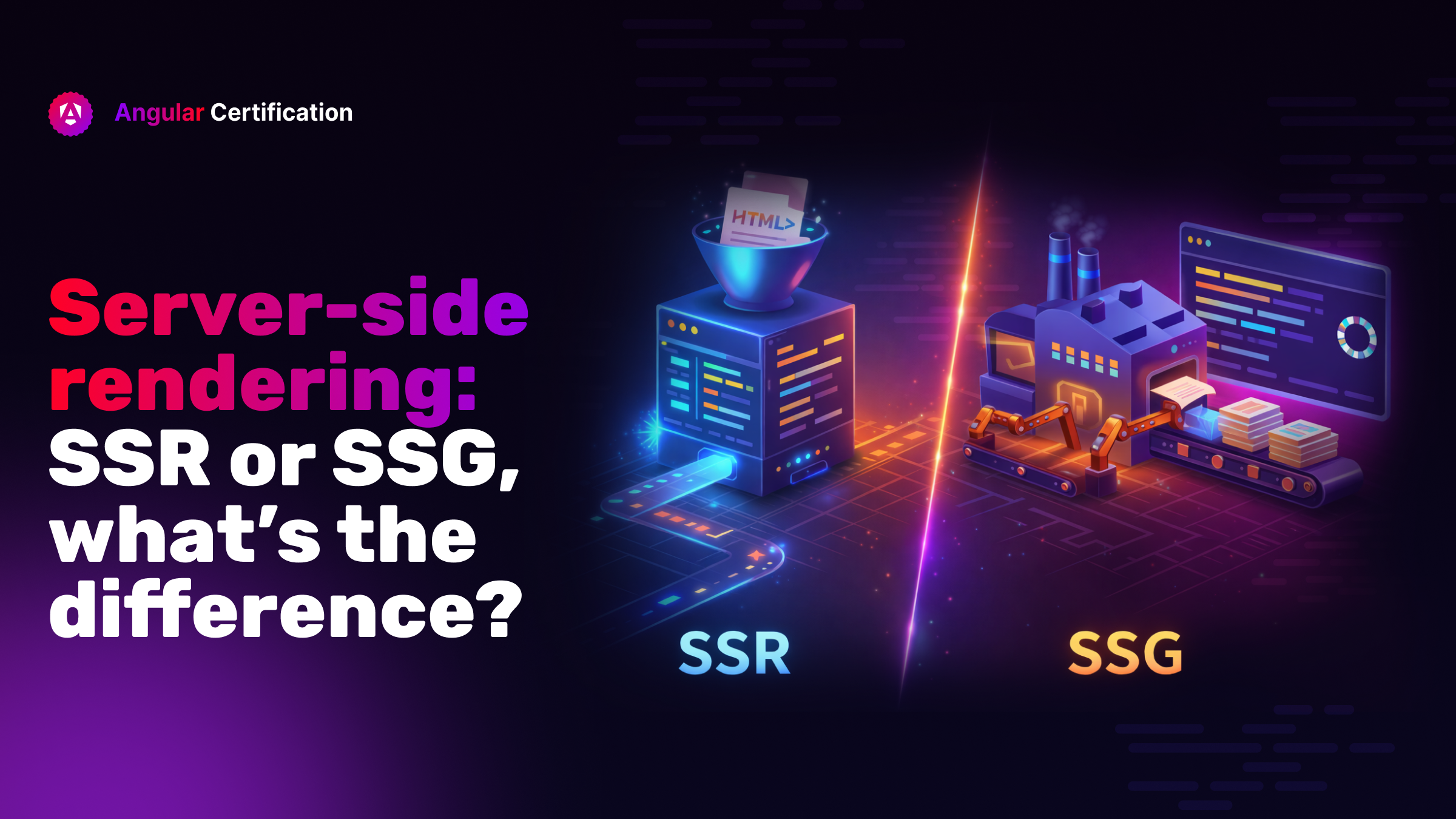
JavaScript Performance Optimization: Techniques for Blazing Fast Applications
Improve your JavaScript performance with practical techniques. Learn about efficient memory use, smart DOM handling, and effective code splitting. See how these methods can speed up your web apps and enhance user experience.
Daniel Kelly
September 12, 2024
In the world of web development, performance is king. Users expect web applications to be fast, responsive, and smooth, regardless of the device or network conditions. As JavaScript developers, it's our responsibility to ensure our applications meet these high expectations. Let's explore some advanced performance optimization techniques that can help you create blazing fast JavaScript applications.
Memory Management: Keeping Your App Lean
Efficient memory management is crucial for maintaining application performance, especially for long-running applications or those dealing with large datasets.
1. Avoid Memory Leaks
Memory leaks can cause your application to slow down over time and eventually crash. Common sources of memory leaks include:
- Forgotten event listeners
- Circular references
- Closures holding onto large objects
To prevent memory leaks:
// Bad: This event listener is never removed
element.addEventListener('click', () => {
// do something
});
// Good: Store a reference to the listener function
const handleClick = () => {
// do something
};
element.addEventListener('click', handleClick);
// Remove the listener when it's no longer needed
element.removeEventListener('click', handleClick);
2. Use WeakMap and WeakSet
For associating data with objects without preventing garbage collection, use WeakMap and WeakSet:
// Using WeakMap to store metadata
const metadata = new WeakMap();
function addMetadata(obj, data) {
metadata.set(obj, data);
}
const user = { name: 'John' };
addMetadata(user, { lastLogin: Date.now() });
// When 'user' is garbage collected, its metadata will also be removed
Efficient DOM Manipulation: Minimizing Repaints and Reflows
The Document Object Model (DOM) is often the bottleneck in web application performance. Minimizing DOM manipulation and optimizing when it does occur can significantly improve your app's speed.
1. Use DocumentFragment for Batch Updates
When adding multiple elements to the DOM, use a DocumentFragment to batch the updates:
const fragment = document.createDocumentFragment();
for (let i = 0; i < 1000; i++) {
const el = document.createElement('div');
el.textContent = `Item ${i}`;
fragment.appendChild(el);
}
document.body.appendChild(fragment);
2. Debounce and Throttle Event Handlers
For events that fire rapidly (like scroll or resize), use debouncing or throttling to limit how often the handler is called:
function debounce(func, wait) {
let timeout;
return function executedFunction(...args) {
const later = () => {
clearTimeout(timeout);
func(...args);
};
clearTimeout(timeout);
timeout = setTimeout(later, wait);
};
}
const debouncedHandleResize = debounce(() => {
// Handle resize
}, 250);
window.addEventListener('resize', debouncedHandleResize);
Code Splitting: Loading What You Need, When You Need It
Code splitting is a technique that allows you to split your JavaScript bundle into smaller chunks and load them on demand. This can significantly improve initial load times, especially for large applications.
1. Dynamic Imports
Use dynamic imports to load modules only when they're needed:
button.addEventListener('click', async () => {
const module = await import('./heavy-module.js');
module.doSomething();
});
2. Route-Based Code Splitting
For single-page applications, implement route-based code splitting to load only the code needed for the current route:
// Using React and React Router
import React, { Suspense, lazy } from 'react';
import { BrowserRouter as Router, Route, Switch } from 'react-router-dom';
const Home = lazy(() => import('./routes/Home'));
const About = lazy(() => import('./routes/About'));
function App() {
return (
<Router>
<Suspense fallback={<div>Loading...</div>}>
<Switch>
<Route exact path="/" component={Home}/>
<Route path="/about" component={About}/>
</Switch>
</Suspense>
</Router>
);
}
Web Workers: Offloading Heavy Computations
Web Workers allow you to run scripts in background threads, keeping your main thread free for UI updates and user interactions.
// main.js
const worker = new Worker('worker.js');
worker.postMessage({ data: largeArray });
worker.onmessage = function(event) {
console.log('Processed data:', event.data);
};
// worker.js
self.onmessage = function(event) {
const result = heavyComputation(event.data);
self.postMessage(result);
};
Optimizing Rendering: Virtual DOM and Efficient Updates
For complex UIs with frequent updates, consider using libraries that implement a virtual DOM, like React or Vue. These libraries optimize rendering by minimizing actual DOM manipulations.
// React component with efficient updates
function Counter() {
const [count, setCount] = useState(0);
return (
<div>
<p>You clicked {count} times</p>
<button onClick={() => setCount(count + 1)}>
Click me
</button>
</div>
);
}
Measuring and Monitoring Performance
To optimize effectively, you need to measure. Use browser developer tools and performance APIs to identify bottlenecks:
// Measure time taken by a function
const t0 = performance.now();
expensiveOperation();
const t1 = performance.now();
console.log(`Operation took ${t1 - t0} milliseconds`);
// Use Performance Observer to monitor long tasks
const observer = new PerformanceObserver((list) => {
for (const entry of list.getEntries()) {
console.log('Long task:', entry);
}
});
observer.observe({entryTypes: ['longtask']});
Path to Blazing Fast Applications
Optimizing JavaScript performance is an ongoing process. As your application grows and evolves, new performance challenges will arise. By applying these techniques and continually measuring and refining your code, you can ensure your applications remain fast and responsive.
Remember, while these optimizations can significantly improve performance, they also add complexity to your code. Always measure the impact of your optimizations and weigh the performance gains against the added complexity.
As you continue to hone your JavaScript optimization skills, you might be interested in formal recognition of your expertise. If certification appeals to you, you can sign up at Certificates.dev for information about our JavaScript Certification program, launching on September 24th. This certification provides an opportunity to validate your knowledge in creating high-performance JavaScript applications, which could be beneficial in today's competitive web development landscape.
More certificates.dev articles
Get the latest news and updates on developer certifications. Content is updated regularly, so please make sure to bookmark this page or sign up to get the latest content directly in your inbox.

Server-side rendering: SSR or SSG, what’s the difference?
This is a clear breakdown of SSR (Server-Side Rendering) vs SSG (Static Site Generation) in Angular—explaining how they work, key differences like runtime vs build-time rendering, hydration behavior, server requirements, and how to choose the right strategy per route.
Alain Chautard
Feb 26, 2026

React Docs Refresh: useActionState and useOptimistic
The React docs for useActionState and useOptimistic have been rewritten with clearer naming, new interactive sandboxes, and patterns from simple pending states to shopping carts with error recovery. Here's what changed and why it matters.
Aurora Scharff
Feb 24, 2026

JavaScript Mistakes That Quietly Destroy Production Apps
Some JavaScript mistakes don’t crash your app, they slowly degrade performance, reliability, and user trust. Here are the ones that cost the most in production.
Martin Ferret
Feb 19, 2026
Looking for Certified Developers?
We can help you recruit Certified Developers for your organization or project. The team has helped many customers employ suitable resources from a pool of 100s of qualified Developers.
Let us help you get the resources you need.

(a Cisco company)